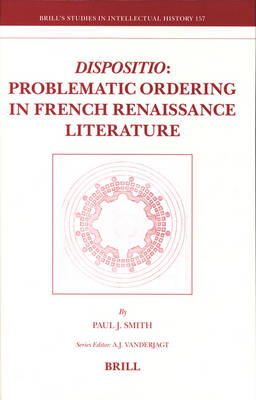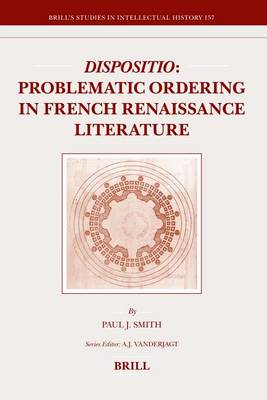Brill's Studies in Intellectual History
1 primary work • 2 total works
Book 157
Dispositio: Problematic Ordering in French Renaissance Literature
by Paul J. Smith
Published 1 January 2007
Drawing on the classical concept of rhetorical dispositio, this study gives new interpretations of a number of literary texts of the French Renaissance, some of them well-known (by Rabelais, Du Bellay and Montaigne), others less-known (the Pierres precieuses by Remy Belleau and the anonymous collections of emblematic fables). All these texts are organized according to an often problematic and disruptive dispositio that dissociates itself from the prescribed and preexisting models. This study not only seeks to approach the problem of literary ordering from a historical and theoretical perspective, it also intends to frame this topic in a more general context: grotesque bodiliness in Rabelais's novels; historiography, gender and travelogue in Montaigne's Essays; imitation and intermediality in the case of the poets and the fabulists.
Dispositio: Problematic Ordering in French Renaissance Literature
by Paul J. Smith
Published 31 December 2007

